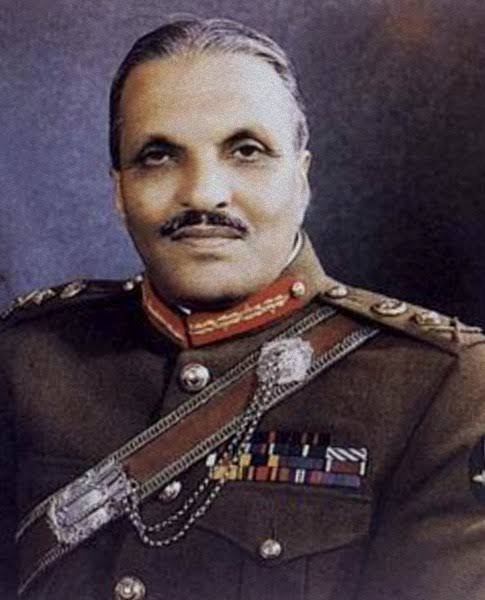
General Zia-ul-Haq
General Zia-ul-Haq was a prominent Pakistani military leader who served as the Chief of Army Staff and later became the sixth President of Pakistan after leading a coup d'état in 1977. His regime is noted for its significant impact on Pakistan's political landscape, including the implementation of Islamic laws and various socio-political reforms. Zia's rule saw both economic growth and political repression, and he remains a controversial figure in Pakistan's history. His legacy continues to influence Pakistani politics and military-civil relations even decades after his death in 1988.
Born on Nov 12, 1924 (101 years old)
Global Media Ratings
Countries Mentioned
| Country | Mentions | Sentiment | Dominance | + Persistence | x Population | = Reach | x GDP (millions) | = Power |
|---|---|---|---|---|---|---|---|---|
| Pakistan | 2 | 3.00 | 0.26% | +0% | 220,892,331 | 577,496 | $280,000 | 732$ |
| Totals | 2 | 220,892,331 | 577,496 | $280,000 | 732$ |
Interactive World Map
Each country's color is based on "Mentions" from the table above.
Recent Mentions
 Pakistan:
General Zia-ul-Haq was the military president of Pakistan who sought to include Imran Khan in his government to bolster his unpopular regime.
3
Pakistan:
General Zia-ul-Haq was the military president of Pakistan who sought to include Imran Khan in his government to bolster his unpopular regime.
3
 Pakistan:
General Zia-ul-Haq imposed martial law in Pakistan and was a significant figure during Saeed Mehdi's career.
3
Pakistan:
General Zia-ul-Haq imposed martial law in Pakistan and was a significant figure during Saeed Mehdi's career.
3
 Pakistan:
General Zia-ul-Haq's martial law regime was marked by political repression.
2
Pakistan:
General Zia-ul-Haq's martial law regime was marked by political repression.
2
 Pakistan:
General Zia-ul-Haq is often viewed as having all the flaws by some, while others see only the good qualities in Zulfikar Ali Bhutto.
4
Pakistan:
General Zia-ul-Haq is often viewed as having all the flaws by some, while others see only the good qualities in Zulfikar Ali Bhutto.
4
 Pakistan:
General Zia-ul-Haq was a popular military dictator whose death led to significant political changes.
5
Pakistan:
General Zia-ul-Haq was a popular military dictator whose death led to significant political changes.
5
 Pakistan:
General Zia-ul-Haq's role became prominent during the political turmoil in Balochistan.
4
Pakistan:
General Zia-ul-Haq's role became prominent during the political turmoil in Balochistan.
4
 Pakistan:
General Zia-ul-Haq initiated the discussion on new provinces as he was displeased with the Pakistan People's Party in Sindh.
4
Pakistan:
General Zia-ul-Haq initiated the discussion on new provinces as he was displeased with the Pakistan People's Party in Sindh.
4
 Pakistan:
General Zia-ul-Haq is mentioned in relation to a past political charge sheet.
5
Pakistan:
General Zia-ul-Haq is mentioned in relation to a past political charge sheet.
5
 Pakistan:
General Zia-ul-Haq was involved in the political decisions surrounding Zulfikar Ali Bhutto's execution.
4
Pakistan:
General Zia-ul-Haq was involved in the political decisions surrounding Zulfikar Ali Bhutto's execution.
4
 Pakistan:
General Zia-ul-Haq is mentioned for his role in the political upheaval that led to the removal of Muhammad Khan Junejo.
3
Pakistan:
General Zia-ul-Haq is mentioned for his role in the political upheaval that led to the removal of Muhammad Khan Junejo.
3